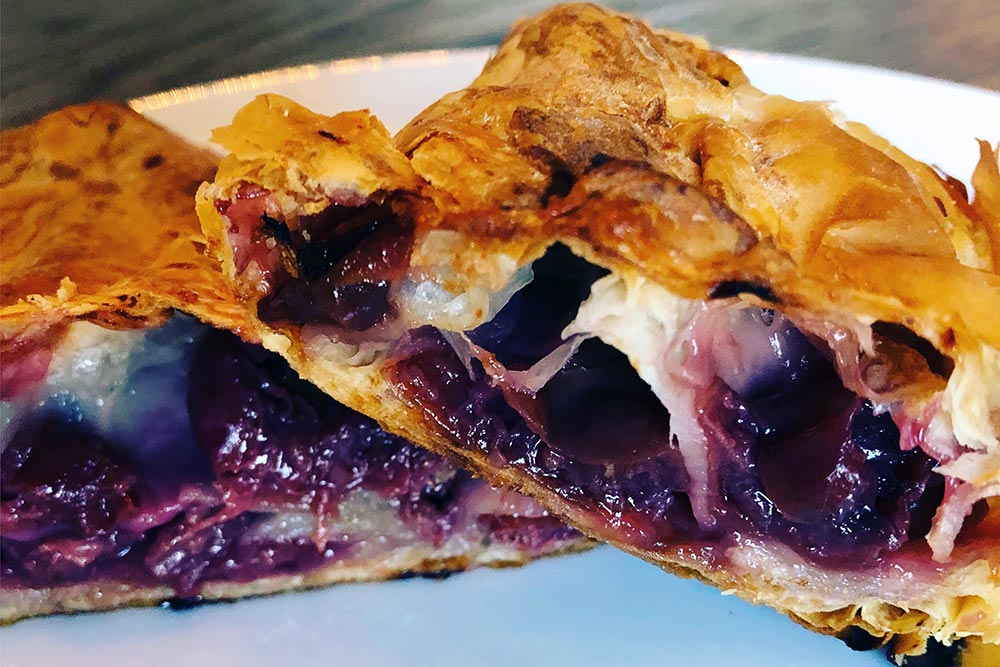One of my favorite desserts is a traditional dish that my family used to make – pita with sour cherries. This makes for a perfect fall comfort food and a great Thanksgiving treat. What’s interesting about sour cherries is that they have phytochemicals such as quercetin, gallic acid, p-coumaric acid and ellagic acid, among many others, that help reduce inflammation, reduce muscle and joint pain after exercise, improve cardiovascular health, and have even been found to decrease cancer cell growth!
When freeze-dried sour cherry powder was administered to rats who have high cholesterol, they decreased both total cholesterol and LDL levels (“bad” cholesterol) and increased HDL (“good” cholesterol). Cherries are also a potent antioxidant – they help reduce the damage in our cells that can be caused by free radicals and that contributes to development of chronic disease.
Keep in mind, however, that cherries are high in fructose, and that sour cherry products often come with sugar added, so if you consume them, do so in moderation and select a low sugar or unsweetened option. The cherry pita recipe shared here is modeled after my family’s recipe, so I have provided some ranges of how much sugar you might want to use, and you can certainly select unsweetened cherries (the ones I used have added sugar so this is why I recommend only using a little bit of the cherry juice and adding water to moisten the fillo pastry instead). Furthermore, you can try this with frozen sour cherries – they do not lose nutritional value!

